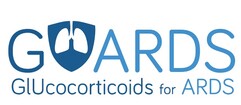- Home
- RFT R&D Department
- Why research matters
-
Departments
- All Departments
- Anaesthesia, Perioperative Medicine & Pain Management
- Breast Surgery
- Breathing Space
- Cardiovascular Medicine
- Covid-19
- Critical Care
- Dermatology
- Ear, Nose & Throat Surgery
- Emergency Medicine
- Gastroenterology
- General Surgery
- Haematology
- Health Services
- Mental Health
- Neurology
- Nutrition & Dietetics
- Obstetrics, Gynaecology & Reproductive Health
- Ophthalmology
- Oral Medicine
- Orthopaedics
- Paediatrics
- Physiotherapy
- Respiratory Medicine
- Rheumatology
- Sexual Health
- Speech & Language
- Urology
- Your role in research
- Home
- RFT R&D Department
- Why research matters
-
Departments
- All Departments
- Anaesthesia, Perioperative Medicine & Pain Management
- Breast Surgery
- Breathing Space
- Cardiovascular Medicine
- Covid-19
- Critical Care
- Dermatology
- Ear, Nose & Throat Surgery
- Emergency Medicine
- Gastroenterology
- General Surgery
- Haematology
- Health Services
- Mental Health
- Neurology
- Nutrition & Dietetics
- Obstetrics, Gynaecology & Reproductive Health
- Ophthalmology
- Oral Medicine
- Orthopaedics
- Paediatrics
- Physiotherapy
- Respiratory Medicine
- Rheumatology
- Sexual Health
- Speech & Language
- Urology
- Your role in research











